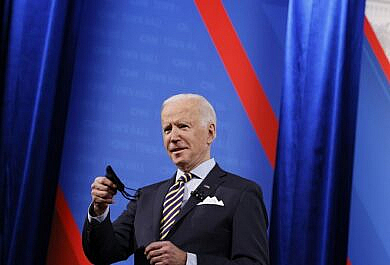Just like his predecessor, President Biden is facing stiff resistance to his agenda in court as his attempt to not enforce immigration law is halted. Is this just the first of many lawsuits in the Biden era?
Summary
Just one week into his tenure, President Joe Biden’s attempt to not enforce deportation laws was blocked by a federal judge in Texas.
- Before being sued by Texas, the Biden administration was set to “pause” deportations for 100 days to “review” immigration enforcement and “let [Dept. of Homeland Security] focus resources on its most pressing needs”.
- A federal judge sided with Texas, saying the U.S. Attorney General did not have the authority to ignore deportations “when a final order of removal has already been issued.”
- Biden’s team is likely to appeal the ruling, which agreed with Texas’ claim that “the state would face irreparable harm” if deportations were stopped.
- U.S. News and World Report suggested the ruling “mirrors the frequent blocking of the Trump administration’s” immigration policy.
![]()
- CNN highlighted criticism of the ruling from illegal immigration attorneys (who represent illegal immigrants subject to deportation), saying the ruling was “breathtakingly wrong.”
- The Washington Post ensured their readers knew the judge blocking the order was appointed by President Trump, and saying the ruling and future challenges from “Biden opponents” will be subject to “hundreds of Trump appointees”, referring to Trump’s constitutional duty to appoint federal judges.
- Slate editorialized their report into oblivion, calling the ruling “bizarre” and insulted Judge Drew Tipton, saying he “does not appear to have a rudimentary understanding” of the realities of immigration enforcement.
![]()
- RedState blasted the original executive order, saying it gave people looking to enter the country illegally “the message that the doors are open.”
- The ruling was an “early setback” to the Biden’s efforts to get rid of Trump’s immigration policies according to the New York Post.
- The Wall Street Journal emphasized the ruling was based on agreements the Department of Homeland Security signed recently with several states that required the department to “consult” states before any immigration policy changes are enacted.
© Dallas Gerber, 2021






